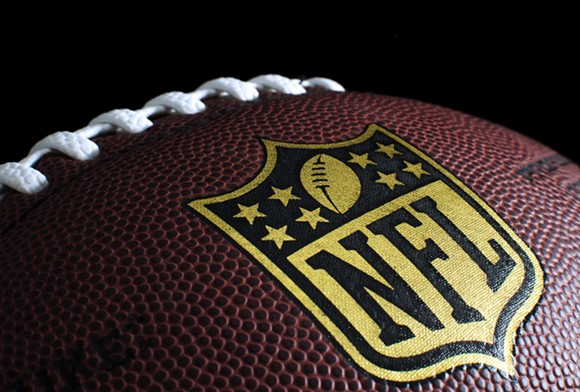Tonight at 10 PM ET, ESPN’s investigative E:60 program will feature an interview with legendary Lions receiver Calvin Johnson. Johnson, who retired at the conclusion of the past NFL season, will speak candidly in the interview about his injury marred career, the league’s culture regarding player safety, and how these things ultimately influenced his decision to retire. It’s not pretty.
“I decided to retire based off of the way my body felt, the way I felt mentally…” Johnson told ESPN in a teaser clip of the interview. “I wanted to not have those problems later. There were certain things, man… when you wake up in the morning, you can’t walk. You shufflin’ across the floor, I had to go through a little routine when I got up in the morning.”
“My job is to catch the ball. When catching the ball hurts, that’s a flag. It’s just long term things that you gotta think about.”
In order to play through the incessant injuries, Johnson said, players are provided with a steady supply of drugs like Vicodin, Toradol, and Cortisone. The reality about players’ ease of access to painkillers is jarring.
“My first half of my career before they really… started looking over the whole industry, or the whole NFL,” said Johnson, “the doctors, the team doctors and trainers, they were giving them out like candy, you know?”
“It was nothing. I mean, if you needed Vicodin, call out, ‘My ankle hurt,’ you know. ‘I need, I need it. I can’t, I can’t play without it,’ or something like that. It was simple.”
In addition to the overwhelmingly common use of painkillers, Johnson also spoke out on the issue of concussions, a controversial topic surrounding the league today. The sheer volume of incidents he claims is staggering.
"Concussions happen," he said. "If not on every play, then they happen like every other, every third play, you know.”
"I don't know how many I've had over my career, you know, but I've definitely had my fair share."
Despite the NFL’s insistence that teams diagnose and process potentially concussed players, conflicts arise when team doctors are more loyal to the interests of the team rather than the interests of the player.
"The team doctor, the team trainers, they work for the team,” said Johnson. “And I love 'em, you know. They're some good people, you know. They want to see you do good. But at the same time, they work for the team, you know. They're trying to do whatever they can to get you back on the field and make your team look good.”
These unfortunate realities about the nature of football force many players into an uncomfortable choice- is mortgaging your health down the road worth it for the money? Potential brain injuries, drug dependences, and the bone crushing physical toll of playing the game are all things athletes have to weigh against the fame and fortune.
Even for Megatron, it was simply too much.


